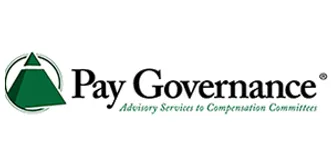Future-Proofing Talent:
The Board’s Role in Reskilling for the AI Era
Archive

NACD Northern California
Contact Us
Lisa Spivey,
Executive Director
Kate Azima,
Director of Partnerships & Marketing
programs@northerncalifornia.nacdonline.org
Find a Chapter
About The Event
NACD Northern California hosted an in-depth discussion on the board’s role in human capital oversight amid technological disruption—exploring how boards can guide organizations in future-proofing their talent strategies, balance innovation with workforce readiness, and position their companies for sustained success in the AI era.
VIEW THE RECORDING
KEY TAKEAWAYS
Workforce Disruption
- Entry-level and mid-skill roles in fields such as software development, marketing, sales, and customer service are already being reshaped or eliminated by AI, with unemployment in AI-exposed occupations running at 12–13 percent (source: Stanford).
- AI-native startups are able to scale quickly with AI-first strategies while larger public companies tend to adopt more slowly, focusing on the augmentation of existing systems.
- Established tech stacks make change slower while AI tools evolve rapidly; boards should help management focus first and foremost on augmenting current capabilities rather than “rip and replace,” given the large capital investment.
- Directors should require management to deliver workforce-impact assessments and enforce ethical guidelines on redeployment, retraining, and severance.
Reskilling and Talent Strategy
- Less than 1 percent of companies have achieved AI maturity (source: McKinsey), underscoring that most are still in a testing and learning phase. Boards should expect management to be iterative but strategic.
- The AI adoption rate is climbing, but only slowly: In 2024, 12 percent of the workforce used generative AI daily, rising to 14 percent in 2025 (source: PwC 2025 Hope & Fears Survey). Boards should consider how their companies compare against these benchmarks.
- Boards should hold management accountable for robust reskilling programs, especially in functions most exposed to AI-driven change.
- Reskilling must align with the company’s long-term corporate strategy and culture, not remain siloed within human resources.
- Directors should require clear metrics—participation, skill acquisition, redeployment outcomes—so that reskilling progress is visible and measurable.
Workforce Transformation
- The AI labor market is evolving rapidly: AI-literate roles command a 28 percent salary premium, or roughly $18,000 more annually, and the overall job skill mix has shifted by 32 percent in the past three years (source: Lightcast).
- Over 50 percent of AI-related jobs are being created outside of the tech industry, signaling a much broader impact across all sectors.
- Boards should push for reskilling that anticipates this shift, ensuring employees gain AI fluency regardless of function.
AI Literacy and Culture
- Directors themselves must become AI-literate to provide oversight and avoid relying solely on management or consultants. Practice using it in your personal life to see what its capabilities are.
- Boards should consider creating a dedicated AI advisory board to help guide transformation and ensure management has concrete workforce strategies.
- Promote a “learning culture”—employees should be encouraged and incentivized to adopt and experiment with AI tools within certain guardrails.
- Boards should require scenario planning (e.g., “What if 20 percent of customer-support roles disappear in the next 18 months?”) to stress-test resilience.
Innovation and Risk Oversight
- AI adoption creates efficiency, but without guardrails it can introduce bias, reputational damage, and cybersecurity vulnerabilities. Therefore, directors should mandate enterprise-wide AI policies covering data integrity, ethics, cybersecurity, and third-party risk.
- Boards must ensure management is anticipating new regulations and disclosure standards on AI use, data, and workforce impacts.
The Board’s Role Redefined
- AI is not just a technology issue but also a transformational business issue that touches talent models, strategy, culture, and stakeholder trust.
- Directors must go beyond compliance checklists and focus on long-term workforce health, innovation readiness, and resilience.
- Boards should challenge management on whether sufficient investment is being made in human-capital transformation to keep pace with disruption.
- Directors must take a leadership role in ensuring the company knows where and when AI will impact the business most and act strategically to fill gaps.
- Transparent communication with employees and customers will be critical; handling AI disruption openly will determine corporate trustworthiness and reputation.
SPEAKERS
MODERATOR
Thank you to our partner for making this event possible
NACD Northern California
Contact Us
Lisa Spivey,
Executive Director
Kate Azima,
Director of Partnerships & Marketing
programs@northerncalifornia.nacdonline.org
Find a Chapter
By registering for an NACD or NACD Chapter Network event, you agree to the following Code of Conduct.
| NACD and the NACD Chapter Network organizations (NACD) are non-partisan, nonprofit organizations dedicated to providing directors with the opportunity to discuss timely governance oversight practices. The views of the speakers and audience are their own and do not necessarily reflect the views of NACD. |








